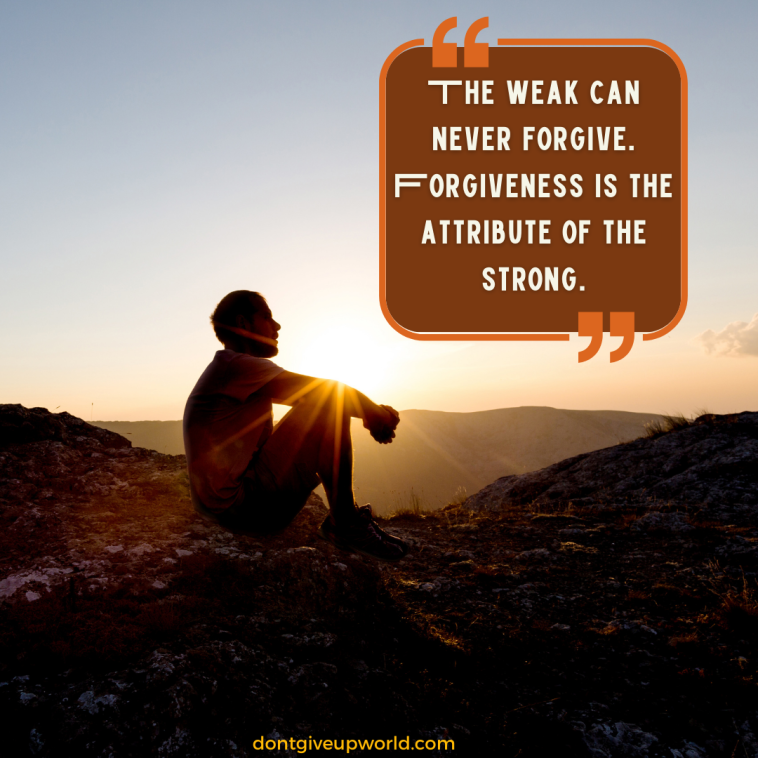Introduction
“The weak can never forgive Forgiveness is the attribute of the strong,” said Mahatma Gandhi, echoing the power of forgiveness.
Forging Through Betrayal
In the quaint town of Oakwood, nestled amidst rolling hills, lived a young woman named Emily. Her heart had been scarred by betrayal. Her best friend, Sarah, had betrayed her trust, leaving her shattered.
Emily’s heartache was profound, but she harbored no bitterness. Instead, she chose forgiveness. It wasn’t weakness; it was strength in its purest form. Forgiveness liberated her from the chains of resentment, allowing her to move forward with grace.
A Journey of Healing
As Emily embarked on her journey of healing, she encountered skepticism and doubt. Some questioned her decision to forgive, deeming it a sign of weakness. Yet, Emily remained steadfast in her conviction. Forgiveness wasn’t about excusing the wrongdoing; it was about releasing the burden of anger and resentment.
Through her forgiveness, Emily found solace and inner peace. The wounds of betrayal slowly healed, leaving behind scars that whispered tales of resilience and courage.
The Triumph of Compassion
In time, Sarah sought forgiveness, remorse evident in her eyes. Emily welcomed her with open arms, embracing the power of compassion. Their friendship blossomed anew, stronger than before. Through forgiveness, they discovered the true essence of strength – the ability to rise above pain and embrace love.
Conclusion: In a world fraught with turmoil and strife, forgiveness shines as a beacon of hope. It is not the weak who forgive, but the strong. For in forgiveness, we find the strength to heal, to love, and to thrive. The weak can never forgive Forgiveness is the attribute of the strong
For More Info Click Here
More Such Article Click Here




GIPHY App Key not set. Please check settings